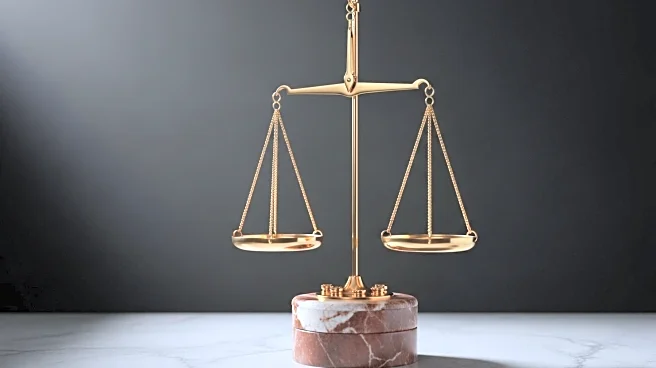What is the story about?
What's Happening?
Justice Clarence Thomas of the U.S. Supreme Court has expressed skepticism about the role of legal precedent in upcoming court decisions. Speaking at the Catholic University of America's Columbus School of Law, Thomas suggested that some precedents might not be as sacrosanct as traditionally believed, describing them as potentially 'something somebody dreamt up and others went along with.' His comments come as the Supreme Court prepares to begin its new term on October 6, where it will consider cases involving same-sex marriage, tariffs, trans rights, campaign finance law, religious rights, and capital punishment. Thomas, who was in the minority opposing the 2015 Obergefell decision that legalized same-sex marriage, has previously called for the reconsideration of substantive due process precedents, including those related to contraception and same-sex intimacy.
Why It's Important?
Justice Thomas's remarks highlight a potential shift in how the Supreme Court may approach established legal precedents, which could have significant implications for U.S. law and society. If the court decides to overturn or modify key decisions like Obergefell v. Hodges, it could affect the rights of same-sex couples nationwide. The conservative supermajority on the court, bolstered by appointments during President Trump's terms, has already demonstrated a willingness to overturn longstanding precedents, as seen in the 2022 decision to strike down federal abortion rights established by Roe v. Wade. This approach could lead to further legal and social changes, impacting various groups and potentially altering the landscape of American civil rights.
What's Next?
As the Supreme Court's new term begins, attention will be focused on how the justices, particularly the conservative majority, will handle cases that challenge established precedents. Stakeholders, including civil rights organizations, legal experts, and political leaders, will likely engage in debates and advocacy efforts to influence the court's decisions. The outcomes of these cases could prompt legislative responses or further judicial challenges, shaping the future of U.S. law and policy.
Beyond the Headlines
Justice Thomas's comments also raise questions about the ethical and philosophical underpinnings of judicial decision-making. The notion of disregarding precedent could lead to increased unpredictability in the legal system, affecting public trust in the judiciary. Additionally, the potential for significant legal shifts may prompt discussions about the balance of power between the judiciary and other branches of government, as well as the role of personal beliefs in judicial rulings.















